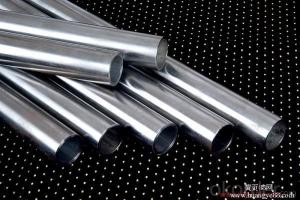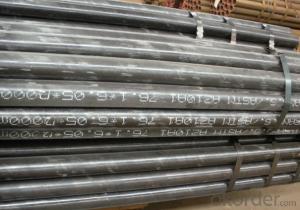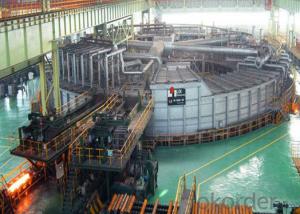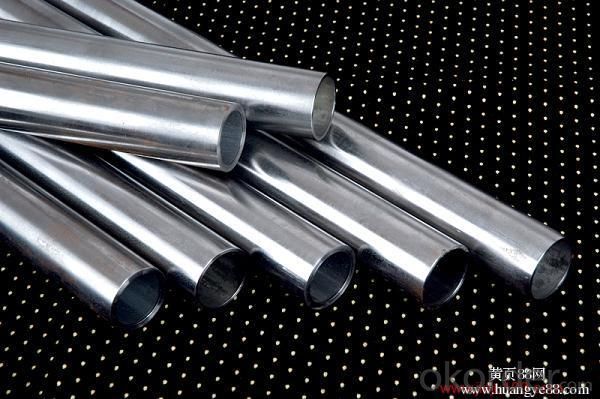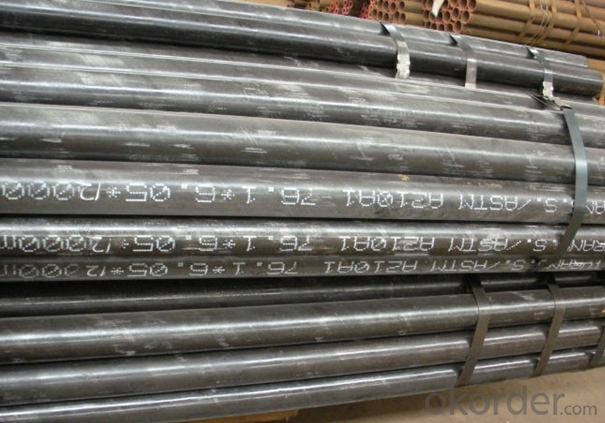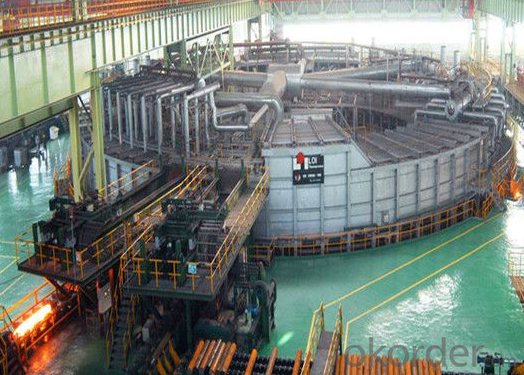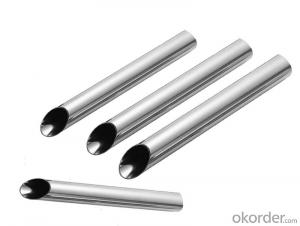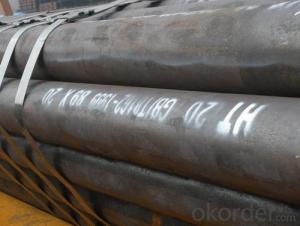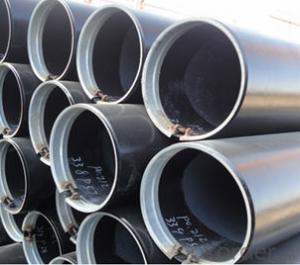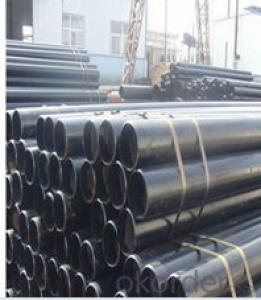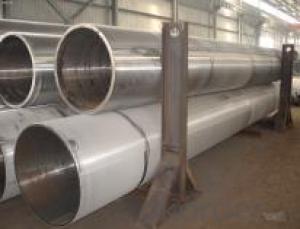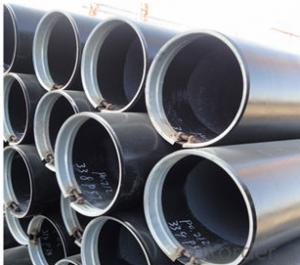High-quality Carbon Seamless Steel Pipe For Boiler J55 CNBM
- Loading Port:
- Qingdao
- Payment Terms:
- TT OR LC
- Min Order Qty:
- 10 pc
- Supply Capability:
- 30 pc/month
OKorder Service Pledge
OKorder Financial Service
You Might Also Like
Quick Details
| Thickness: | 3 - 60 mm | Section Shape: | Round | Outer Diameter: | 21.3 - 1220 mm |
| Secondary Or Not: | Non-secondary | Application: | fluid pipe,boiler pipe, structural pipe, oil/gas/water pipe etc | ||
| Technique: | Hot Rolled | Certification: | ISO9001-2000, ISO14000, ISO18000 , API 5L | Surface Treatment: | Painted, Oiled, galvanized or phosphate etc |
| Special Pipe: | API Pipe | Alloy Or Not: | Is Alloy | Technique:: | Hot rolled or cold rolled |
| Special pipe:: | API/ ASME/thickwall/oil/gas/water pipe | Length:: | 3-12m | Treatment of two ends:: | Beveled end , plain end etc |
| Brand:: | Bai Chuan | Third Party Inspection:: | BV, SGS etc. | Schedule:: | SCH10-SCH160, XS, XXS |
| Other Material:: | 10#, 20#, 16Mn, Q345 etc | Material Type:: | Carbon steel/ Low alloy steel | Producing standard:: | American/Japanese/ German/ Britain/ Chinese standard |
| Grade: | A53(A,B),A106(B,C),A210,API J55,St37,STPG42,A53-A369,API J55-API P110,ST35-ST52 | Standard: | BS EN10296,JIS G3452-2004 |
1. Out Diameter: | 21.3mm-1220mm |
2. Wall Thickness: | 3mm-60mm |
3. Length: | 3m-12m |
4. Producing Standard: |
|
5. Main Material: (Carbon Steel & Low Alloy steel) |
|
6. Special specifications: | Available according to customer’s requirements and quantity. |
7. End Shape: | Beveled end , plain end, varnished, or adding plastic caps to protect the two ends as per customer’s requirements. |
8. Surface treatment: | Painted, Oiled, galvanized, phosphate etc. |
9. Usage: |
|
10. Certificates: | ISO9001-2000, ISO14000, ISO18000, API 5L certificate |
11. Third party inspection: | Welcome you to send a third party inspecting company (BV, SGS etc) to check the quality of our final products. |
12. Pictures: | our producing flow chart, our factory, production line, inspecting equipments, our products are listed below for your reference. |
- Q: What is the difference between API 5L and ASTM A53 steel pipes?
- API 5L and ASTM A53 are widely utilized carbon steel pipe standards with similar purposes but notable distinctions. 1. In terms of scope, API 5L pertains to seamless and welded pipes for transporting oil, gas, water, and other fluids. It encompasses plain-end, threaded-end, and belled-end pipe types. Conversely, ASTM A53 is a standard specification for seamless and welded black and hot-dipped galvanized steel pipes utilized in mechanical and pressure applications. 2. The manufacturing processes differ, as API 5L pipes undergo hot-rolling, while ASTM A53 pipes undergo either hot-rolling or cold-drawing. This variance affects the chemical composition and mechanical properties of the pipes. 3. Generally, API 5L pipes have a higher carbon content compared to ASTM A53 pipes. This discrepancy arises from the intended use of API 5L pipes for conveying oil, gas, and water, necessitating greater strength and durability. On the other hand, ASTM A53 pipes cater to mechanical and pressure applications, where lower carbon content is deemed appropriate. 4. API 5L pipes exhibit higher minimum yield strength and tensile strength than ASTM A53 pipes. This outcome stems from the increased carbon content and more stringent manufacturing process employed for API 5L pipes. Conversely, ASTM A53 pipes possess lower yield and tensile strength requirements, rendering them more suitable for general-purpose applications. 5. API 5L pipes offer various coating options, including black varnish, 3PE, FBE, among others, depending on the specific application requirements. In contrast, ASTM A53 pipes are typically hot-dipped galvanized to enhance corrosion resistance. In conclusion, API 5L and ASTM A53 steel pipes differ in scope, manufacturing processes, chemical compositions, mechanical properties, and coating options. The appropriate choice of pipe hinges upon specific application requirements, such as the nature of the conveyed fluid, operating conditions, and desired strength and durability.
- Q: What are the non-destructive testing methods used for steel pipes?
- Some of the non-destructive testing methods used for steel pipes include ultrasonic testing, magnetic particle testing, eddy current testing, radiographic testing, and visual inspection.
- Q: How do you cut steel pipes?
- Steel pipes can be cut using various methods such as using a hacksaw, reciprocating saw, angle grinder, or a pipe cutter. The choice of method depends on the thickness and diameter of the pipe, as well as the precision required for the cut.
- Q: How to perform nondestructive inspection of steel tubes
- The detection principle is based on the ferromagnetic material is magnetized in a magnetic field, discontinuity materials and products (defects) produce leakage magnetic field, magnetic powder adsorption (or detecting) and appear (or on the instrument display). Therefore, this method can only be used for the inspection of the surface or near surface defects of ferromagnetic materials or products.
- Q: Can steel pipes be used for transporting drinking water?
- Indeed, steel pipes have the capacity to transport drinking water. These pipes are extensively employed in water distribution networks and have a long history of usage. Renowned for their robustness, potency, and ability to resist corrosion, steel pipes are highly favored. Nonetheless, it is imperative to ensure that steel pipes designated for drinking water transportation are adequately coated or lined in order to avert any potential contamination originating from the metal. Moreover, it is crucial to conduct routine inspections and maintenance to safeguard the pipes' integrity and to forestall any leaks or ruptures that could jeopardize the water's quality.
- Q: What are the quality control measures for steel pipe manufacturing?
- Quality control measures for steel pipe manufacturing typically include: 1. Raw material inspection: Ensuring that the steel used for manufacturing pipes meets the required specifications and standards. 2. Dimensional checks: Verifying the outer diameter, wall thickness, and length of the pipes to ensure they meet the specified tolerances. 3. Visual inspection: Examining the surface of the pipes for any defects, such as cracks, pits, or corrosion, that could impact their quality or performance. 4. Mechanical testing: Conducting tests, such as tensile strength, yield strength, and hardness tests, to assess the mechanical properties of the pipes. 5. Non-destructive testing (NDT): Employing techniques like ultrasonic testing, magnetic particle inspection, or radiography to detect internal defects or flaws in the pipes without damaging them. 6. Welding inspection: Assessing the quality and integrity of welds used in joining pipe sections together, ensuring they meet the required standards. 7. Coating inspection: Checking the applied protective coatings for uniformity, adhesion, and resistance to corrosion or other environmental factors. 8. Pressure testing: Subjecting a sample of pipes to a hydraulic or pneumatic pressure test to verify their ability to withstand the intended operating conditions without leakage or failure. 9. Packaging and labeling: Ensuring proper packaging and labeling of the pipes, including identification of grade, size, and other relevant details, to facilitate easy identification and handling. 10. Documentation: Maintaining comprehensive records of all quality control activities, including test results, inspection reports, and certifications, for traceability and quality assurance purposes.
- Q: What are the thermal properties of steel pipes?
- Steel pipes have excellent thermal conductivity, meaning they can efficiently transfer heat. They also have a high melting point and can withstand high temperatures without deformation. Additionally, steel pipes have low thermal expansion, allowing them to maintain their shape and structural integrity even when exposed to extreme temperature changes.
- Q: What are the different types of steel pipe tees?
- There are three main types of steel pipe tees: equal tee, reducing tee, and barred tee.
- Q: What's the difference between seamless steel pipe and welded pipe?
- Use, seamless steel pipe is generally used in the condition of higher use, such as temperature and pressure higher, corresponding to the requirements of stress corrosion, seamless steel pipe. With vice.
- Q: How are steel pipes used in the manufacturing of fire sprinkler systems?
- Steel pipes are commonly used in the manufacturing of fire sprinkler systems due to their durability and resistance to high temperatures. These pipes are used to transport water or other fire suppressants from the water supply to the sprinkler heads. The steel pipes are able to withstand the pressure and heat generated during a fire, ensuring a reliable and effective fire suppression system.
Send your message to us
High-quality Carbon Seamless Steel Pipe For Boiler J55 CNBM
- Loading Port:
- Qingdao
- Payment Terms:
- TT OR LC
- Min Order Qty:
- 10 pc
- Supply Capability:
- 30 pc/month
OKorder Service Pledge
OKorder Financial Service
Similar products
Hot products
Hot Searches
Related keywords
